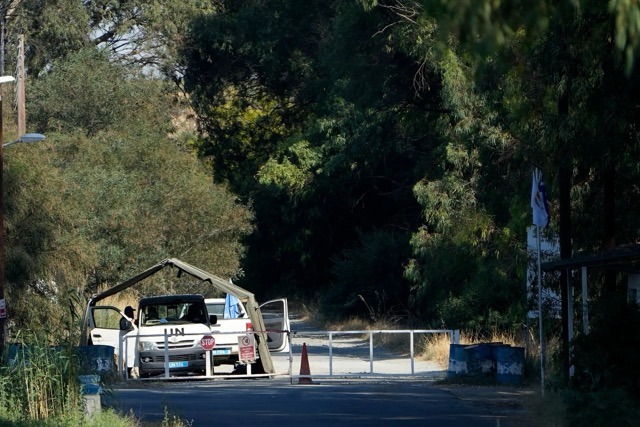Nearly 30 asylum seekers find themselves in a precarious situation within Cyprus’s United Nations-controlled buffer zone, caught between the Turkish-occupied north and the internationally recognized south. This limbo follows heightened scrutiny from Cypriot authorities due to an influx of Syrians fleeing Lebanon.

The group comprises 13 Syrians and 14 individuals from other parts of the Middle East, Africa, and Asia, scattered across the 112-mile Green Line that bisects Cyprus, an EU member state. They arrived on foot from the north, seeking sanctuary but facing deportation if they return to the Turkish-administered region, which lacks formal asylum processes and considers crossing into the buffer zone illegal.
President Nikos Christodoulides affirmed humanitarian aid provision for those in the buffer zone but staunchly opposed their entry into the southern territories, citing concerns over setting a precedent for illegal migration routes. Cyprus, responsible for EU entry regulations, emphasizes stringent supervision along the buffer zone’s length to manage migration flows effectively.
While EU law mandates consideration of asylum requests, even within transit zones like the buffer zone, the migrants’ status remains unresolved. The UN refugee agency in Cyprus has expressed apprehension about their welfare amid soaring temperatures, surpassing 100 degrees Fahrenheit this week.
Emilia Strovolidou, a spokesperson for the UN refugee agency, highlighted the dire conditions faced by the migrants, including a 13-year-old hospitalized for psychological distress and frequent incidents of heat-related illness. Temporary facilities with tents, toilets, and showers have been set up, but living long-term in a demilitarized zone is untenable.
The influx from Lebanon, driven by economic crises and regional tensions, has strained Cyprus’s asylum system, prompting a freeze on Syrian asylum applications and leaving over 14,000 Syrians in uncertainty. Despite efforts to curb sea arrivals and bolster patrols, increased activity along the Green Line necessitates heightened border security measures.
President Christodoulides’s recent visit to Lebanon with EU leaders underscored collaborative efforts to stabilize Lebanon’s economy and combat human trafficking, yet challenges persist as Cyprus navigates its humanitarian and security obligations amid evolving migration patterns.








